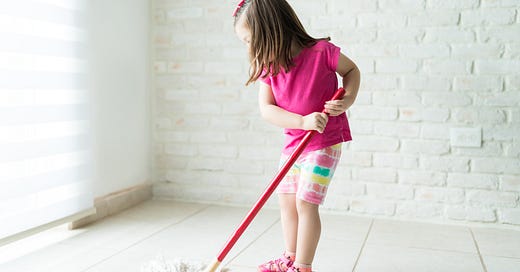Domestic Inequality Starts in Childhood
Girls do more work around the house than boys. They learn it from their parents.
Because I have a daughter and a son, and because I’m fascinated by the ways boys and girls get socialized, I’ve noticed — with sadness and frustration — that my daughter takes on a lot more household labor than my son does. All things being equal, I’d expect the trend to go in the opposite direction, because she is three years younger. Yet she’s typically the one offering to help cook, clean the house and fold clothes. I make sure to solicit my son’s help, too, but her eagerness means she spends more time doing household tasks.
Some of this could, of course, be due to differences in personality or temperament. But I’ve wondered if the discrepancy might also reflect early social conditioning. So over the past few weeks I’ve dug into the research and, lo and behold, have discovered that my kids’ gendered propensities are not uncommon — and that boys and girls learn a lot about domestic expectations from observing their parents.
One study in particular made my heart hurt. It was published in 2008 but the findings still feel relevant today. In it, researchers in Canada analyzed data from a large study that tracked how more than 2,000 adolescents in grades 7 through 12 spent their time and how busy they felt. They found that girls spent more time on household tasks than boys did on school days, and that on Sundays, that difference skyrocketed — girls spent, on average, nearly 40 minutes longer on household tasks on Sundays than boys.





